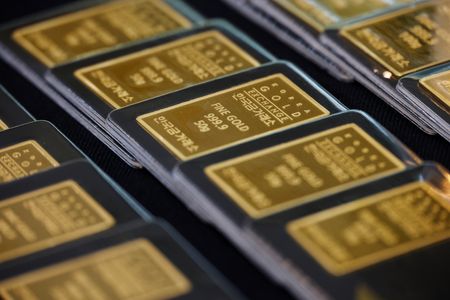By Nell Mackenzie
(Reuters) – Hedge fund EDL Capital described November as “bloodbath” month in foreign exchange markets in its latest investor letter, but Edouard de Langlade, the star manager of his eponymous fund, predicted recent weakness in the dollar would be temporary.
“We were short JPY, CHF, CNH, NZD and GBP, which was a bloodbath this month,” said the $945 million hedge fund manager in a letter released on Tuesday and seen by Reuters.
He was referring to the Japanese yen, Swiss franc, Chinese yuan, New Zealand dollar and British pound – currencies that all rallied last month as softer than expected U.S. inflation numbers unleashed a wave of dollar selling.
Sentiment towards British assets also stabilised following a recent rout and as new finance minister Jeremy Hunt made headway way towards restoring Britain’s market credibility with a predictable budget.
British 10-year gilt yields fell 37 basis points in November and the FTSE-100 stock index rallied almost 7%.
“Our shorts in the UK were a bit of a disaster as gilts exploded, the FTSE 100 snapped back to trade close to its all-time high, and GBPUSD performed strongly,” the letter said.
However, the fund did not lose too much on the pound because de Langlade traded the currency against the euro.
Though November was a mixed month, the fund still managed a 1.16% increase in performance for the month and is still up 15.05% for the year, the letter said.
EDL outperforms by almost 7% a wider global macro index of funds with similar focus compiled by Barclayhedge.
EDL Capital trades on macro economic signals. It has a mixed portfolio of stocks, bonds, commodities, precious metals and forex. De Langlade has reduced his forex positions and taken some profits on parts of his precious metals longs, the letter said.
The hedge fund manager favoured being long short-term U.S. Treasury rates, the letter added. While the Federal Reserve sounds hawkish now, if U.S. economic data turns negative, the central bank may change tack, he added.
Data on Tuesday showed U.S consumer prices barely rose in November, leading to the smallest annual increase in inflation in nearly a year.
EDL declined to comment.
(Reporting by Nell Mackenzie; Editing by Mark Potter)











